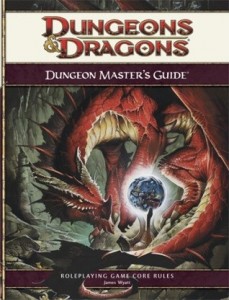Yay, the D&D game has really been rocking for me. I’ve definitely found that I love games that have social ladders we can climb. When I play in those games I like playing the kind of people that can slip between the cracks, go unnoticed for a while and have unexpected influence. Is this a trend?
The original. Sadric. Founder of www.sadric.com. Sadric was never meant to be a political figure but he found himself privy to knowledge that others could not be trusted with. He was driven first to protect his home town of Eldredd but, as he discovered a much larger conspiracy traveled throughout the Three Cities region (Theagh, Eldredd and Secsilcoren) to stamp out the evil that rotted it from the inside and to rebuild the an order of knights that had been extinguished. To do so he made powerful allies (and even more powerful enemies), traveled planes, fought all manner of foe and finally discovered Galathor, a beastmaster and warlord whose origin was similar to Sadric, but who sought conquest over man rather than union. As the campaign left off, it was Sadric’s charge to raise and army to fend him off.
Kevan’s Exatled Game set in Gem. There were lot of political machinations internally between the houses, as well as conflict from the outside (both the Fair Folk and the Dragonbloods). I played Hands of Velvet, a Night Cast who could appear as anyone he wanted to. His goals were very honorable (end slavery in the realm) but his methods were subtle. He used rumor and word of mouth as a weapon, invented characters to front the “resistance” and generally danced along the edges of society.
Charles’s “The Hand” Campaign. Set in an “Arabian nights “ D&D fantasy setting. The city was controlled by powerful merchants who perused their personal interests over those of the people. I played Sazil, a tiefling rogue who was rarely trusted but nevertheless earned the respect of the Forces of Good (FOG) to and enlisted to fight the FOE (yep, you can probably guess the acronym). Though this game ended up being less political than I thought it would be, Sazil was definitely a aiming to gain influence within Rajan (the capital city in The Hand).
Jeremy’s 7th Sea game. Grisha, also known as Hibou was an Usuran spy who was supposed to impersonate a Musketeer and send the secrets of Montaigne back to the Gaius. Nothing of this ever really happened and his “reveal” was totally anticlimactic (“hey guys, I’m actually a spy but we were always after the same thing, sorry for lying to you”).
And finally we come to Purple in Waterdeep. Ace, another rogue. In some ways he is the Grisha I never got to play. His goal is to gain power within the city, amongst the guilds. His method is information brokering. He knows that guilds will pay a high price to know the activities of each other, and that is what he has to offer. Specifically he is a spy for Jilnik. Ace is more of a mercenary than I usually play. He’s out for himself, but has a strong bond to his “crew”. To him the people at his side are his family and he will never (intentionally at least) betray them. The thing I’m really looking forward to in this game (over the next 5 levels at least) is making connections, political maneuvers, in order to climb the ladder and become a powerful political figure in the city (as well as being a hero). I think in the end I’d like Jilnik’s job. Placed as the spy master, I’d have a legion of underlings with an endless supply of plot hooks for the DM. This would satisfy me as a player while still leaving Ace as viable player character.
Ahh… but the game… this was a post about the game. It was broken down to three parts.
1. A cipher puzzle. We were given an encrypted note that some of the smarter members of our party were able to uncode and discover that Lord Aberige had some kind of business deals with the hags that were attacking peasants outside the city.
2. An extended and personal skill challenge. Each player got to choose a goal for their character and play it out over a skill challenge. Savana succeeded in becoming well acquainted wit the streets of Waterdeep. Grungebeard was taught Draconic by a Dragonborn, and Fancy was indoctrinated into the church of Gergil (sp?). I had a partial success (5 success, 2 failures) in winning the favor of Jenny, the baker. I learned what was most important to me, which was that she wasn’t the one who hired the assassins to kill us. One more test to see if she will actually trust me in the end.
3. A fight with Henry O’Toule, a dead carpenter who wouldn’t give up the ghost. He was an solo monster with some cool tricks but I don’t think he packed a big enough punch.
What rocked
All three components of the game were good at what they did. Despite not winning the skill challenge, I think something interesting happened out of that. The other players went in widely different direction and I think we got to see a little bit of what is going on in each of their heads, which was cool.
The encounters all had purpose. The letter we needed to decrypt to find out who was attacking us. The fight was done to gain the Carpenter’s guild as allies, etc. Everything was done in the service of revealing more of the story. This was VERY good.
I was griping earlier about weapon damage and the DM was very kind in dropping me a nice superior magic item to help out with that. Thanks!
What could have been improved
I need to remind myself to start asking if I can frame the failure condition. In my case the skill challenge was a partial success so the “total failure” option didn’t happen but I found myself fearing that if I failed, nothing would result and I would have wasted my time (as a player). Had I made the suggestion up front that I want to gain the guild leaders confidence and that if I fail, she wouldn’t trust me and would try to have me kicked out of the guild; that would have made the failure condition much more exciting.
The fight at the end lacked a little punch. Usually I end every fight pretty thrashed. This one I only ended up hurt because the Wizard blasted me out of tree and I fell 60’. That, however is a whole OTHER issue.


